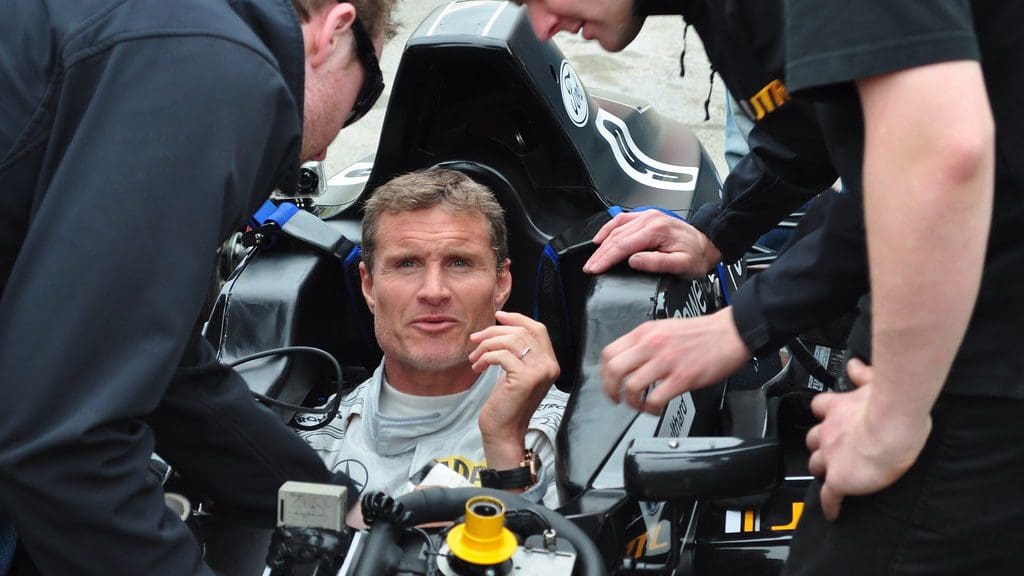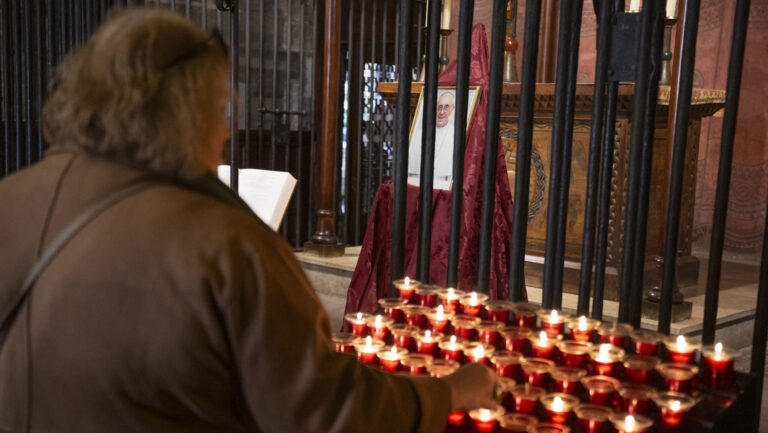The panel was hosted by Zsuzsa Csisztu; and included Tamás Märcz and Ágnes Kovács, Hungarian Olympic champions.
The highly anticipated panel with some of the greatest athletes of the world was filled with spectators in the scorching 34 Celsius heat in the afternoon in scenic Esztergom. The discussions were conducted in English with no Hungarian translation.
The first question asked on stage was one that likely everyone who follows high level sports has asked themselves:
Is One Born with a Champion’s Mind or Is It Something to Develop?
‘If you don’t have work ethic, you can’t succeed at the upper echelon in the top echelon’
Coulthard started his answer by comparing car racing to the fields of sports his conversation partners have excelled in. He emphasized that he thinks that Formula 1 is an ‘easier sport’ than water polo or swimming, since drivers have the power of their engine, and do not need to rely on their own bodies as much. He said that he was given an opportunity, and was not necessarily born with the mindset. He added expressed his opinion that ‘Wherever you are born, you need opportunity and support’. Without the support of his family, he would not have had a chance to develop his skills or his mindset to be able to race at the highest level. He also added that he had two siblings, which forced him to stay determined and focused. ‘If you don’t have work ethic, you can’t succeed at the upper echelon in the top echelon’ – he added.
What Is so Exciting about Cars for Young Boys?
Coulthard reminisced about his childhood, saying that he could remember that he was excited when his family got a new car, however, he ‘can’t remember being really into cars’. Yet, he was always curious about carting. His father used to cart, and was an avid fan of Formula One. David recalled the moment when he saw pictures of his father being a carting champion, saying that he saw his father with a trophy and two girls on his side and he thought that ‘this is the most glamorous thing ever’. So it is fair to say that his family had a role in introducing him to racing, and into cars in general. He grew up in the countryside in Scotland, where he and his siblings all had go-karts to play with.
On the subject of fear of high speeds, Coulthard said he never was a fearless person. He recalled that his siblings had less fear in general, however, he had the desire, the drive to be better. In fact, being better is what always motivated him. He said that he was curious to meet people around the world and to see just how good he could be. He added that he was good enough to win several Grands Prix, but was not as good as Lewis Hamilton or Michael Schumacher. Nevertheless, he never lost any sleep over it. ‘Just because you’re there, it doesn’t mean you deserve to win. If somebody is better, you show respect in sport and shake their hands after’– he continued. Coulthard fnished with the thought that he always tried his best and always gave a hundred per cent.
Does One Need the Ability to Bear Monotony in Sports?
Coulthard explained that motor racing requires a lot of preparation. He said he could remember his teenage years being about keeping his weight down for an entire week before a race, because he is rather tall compared to other drivers. He was constantly preparing for the next race. ‘I find comfort in monotony, because it gives me inner thoughts’ – he added. He also touched on the subject of different types of preparation, such as memorizing all the corners and ideal positioning for every different track, which requires patience and determination.
He said that his 13-year-old son is also racing, however, he thinks that he lacks the required patience. ‘If there’s some kid the same age who has more patience and is more focused, if they work harder, they will have more potential. If someone in the world has the same physical capabilities as you and they work harder, they will get better results.’ he suggested, which is why it is important to see commitment in young athletes.
The Role of His Mentors in Formula
‘You look at the people who achieved in the sport. It would be foolish not to learn from them’
‘You look at the people who achieved in the sport. It would be foolish not to learn from them,’ David Coulthard stated. He added that at the same time, it is always the case that the next generation wants to do better than the previous one. Sir Jackie Stewart’s discipline and commitment was ‘something great to be around’. Having great teammates like Mika Häkkinen and Kimi Räikkönen was also helpful. He said that the two Finnish drivers did not talk a lot, but he could learn a lot from the data they recorded. Formula One includes a large amount of data logging, thus one can see what their teammates or opponents are doing on track. Coulthard said that one tries to replicate those who did better laps to improve oneself. ‘You’ve got to look to others to be better’ – he added.
What Does a Coach Do for a Driver? How’s Formula One a Team Sport?
A driver’s coach will help them with positioning, vehicle dynamics and feedback, however, they never get involved in the physical preparation of a driver. Being physically fit is something that is the responsibility of the driver, and lack of fitness is a lack of commitment. Also, if one is tired mentally, they will make bad decisions, he stressed.
Car racing is definitely a team sport. A driver relies not only on a coach, but on his team as well. ‘Team is everything,’ Coulthard declared. You are alone in the car, but you are only in that car because of the team behind you that built it, he added. The strategy of the team or pit stops could make or break a race. ‘Thanking my team after a race was never a cliché, it was heartfelt’, Coulthard added. He also explained that the greatest pleasure of his career was working and celebrating with his team. He was rewarded very highly financially, but he always raced for pleasure and for competition, or just to be better. He noted that while he is obviously thankful that he was paid well, that was never a motivating factor. He thinks that this is typical for all racers. ‘Hamilton doesn’t need more, he wants more. He wants to race, and he wants to win’ – he added.
Hungarian Grand Prix
Unfortunately, David Coulthard was not available for an interview after the panel, as he had to rush back to Budapest for a Formula One event. He will also attend the Hungarian Grand Prix set on Sunday as a commentator and journalist.






